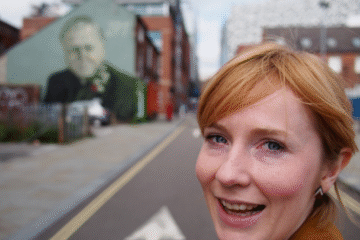Seminar on the 4 February 2026
Social Fiction as a means of ‘unflattening’ disabled children’s educational childhoods.
In this session Jill Pluquailec will present her use of Social Fiction when researching disabled children.

Source: JPluquailec
This seminar presents a methodological reflection on the use of social fiction as a means of ‘unflattening’ disabled children’s educational childhoods. Jill argues there is a critical need for new ways of exploring the lived experiences of neurodivergent and disabled children to complicate ‘flat’ understandings that deny the embodied, affective, socio-spatially mediated experience of school life. She does this by making a case for social fictions as an ethical methodology and reflecting on techniques she used in developing a short story social fiction. She makes the case for why and how fiction-based methods destabilise dominant ways of knowing, seeing, teaching, and intervening with disabled children. Jill concludes by offering a series of ‘what if’ questions about the future development of social fiction as a methodology in Disability Studies and Education, one which brings greater nuance and a sense of three-dimensionality to understandings of neurodivergent bodies and minds in school spaces.
You can read Jill’s short story social fiction, If Walls Could Talk, here.
Dr Jill Pluquailec, Senior Lecturer in Autism, Sheffield Institute of Education, Sheffield Hallam University
Jill’s teaching and research is concerned with social justice for disabled children and families with a particular interest in the ways bodies and spaces in education are both produced and reproduced within matrices of power and surveillance. Her work sits within Critical Disability Studies, Disabled Children’s Childhood Studies, and Critical Autism Studies centring on destabilising dominant knowledges in relation to what it means to be, and be understood, as marginalised. Jill has a specific commitment to social justice and ethics for groups that have been historically excluded or oppressed in both research design and practice.
Subscribe to the recordings:
Video hosted on the PAR YouTube channel.
Audio hosted on the PAR Buzzsprout channel and can be listened to on Spotify, Apple podcasts or on other RSS podcast apps.
The Practice As Research network with its resources is free and always will be, but it does of course incur costs to run and to keep it running. If you use it and benefit, enjoy it and would like to keep it going, please, consider leaving something in the tip jar. Thank you!
